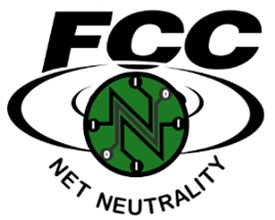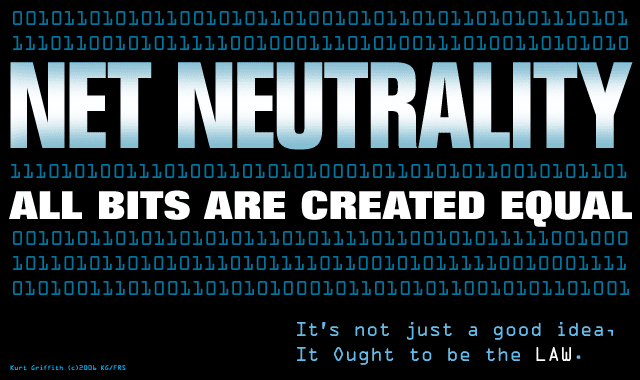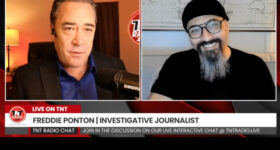21st Century Wire says…
These last few weeks saw a vicious partisan battle take place in the United States over new government policies regarding Net Neutrality.
Today, the Federal Communications Commission (FCC) voted to implement strict new “Net Neutrality” rules designed to make sure Internet service providers treat all ‘legal’ content equally.
 It got really ugly in the week preceding today’s FCC ruling. Democrats and other liberal pundits have said that losing Net Neutrality would allow mega corporations to dictate who has access to the fast lane, and who does not. Republicans and their media outlets are claiming that this was all about ‘Obama wanting to takeover the internet’ by determining what content we are allowed to post online.
It got really ugly in the week preceding today’s FCC ruling. Democrats and other liberal pundits have said that losing Net Neutrality would allow mega corporations to dictate who has access to the fast lane, and who does not. Republicans and their media outlets are claiming that this was all about ‘Obama wanting to takeover the internet’ by determining what content we are allowed to post online.
In the end, both sides of this debate called vigorously for the preservation of an ‘Open Internet’, making it a choice between two paradigms — big government, or “the free market” (big cable operators in this case). So in the end, poor partisan America is left with a classic Hobson’s choice: do you go with the Federal Government or Big Business? Daunting isn’t it? .
One rule of thumb here is that whatever big business is attempting to change regarding the status quo – which is a ‘neutral internet’ aka Net Neutrality – is most likely a change designed to favor their narrow interests and may also be seen as a monopolistic urge to buy-up all the valuable bandwidth we call broadband, effectively shutting out weaker competition aka ‘the little man’. Judging by history, it’s almost 100% certain that any intense lobbying by mega corporations will be in order to tilt the playing field in their favor, and in favor of locking up markets for themselves. That is not a premature concern, it is a clear and present danger.
Cries of a ‘government takeover’ by right-wing pundits like Sean Hannity, Glenn Beck and Michael Savage (all reading from the same hymn sheet. “Didn’t you get the memo?”) may be premature. In other words, it hasn’t happened yet. If it does, the public will have some recourse to fight back, as opposed to a fascist corporate takeover of the internet which cannot be reversed or fought off. So in this way, Sean Hannity, Glenn Beck and Michael Savage, who each work for a mega media corporation – seem to be shilling for the fascist-corporate takeover of the internet’s information super-highway, disingenuously claiming their pro-corporate positions are all about spurring on “competition”, and “innovation”. The reality is that although each of these pundits like to portray themselves as poor little upstarts and ‘not part of the mainstream’, each of them represents big business – so expect big business will dictate what their stance is on this issue. Either that, or these pundits are just obsessed with making Net Neutrality a partisan or “Obama” issue, and actually do not understand the mechanics of the internet from a user or small business point of view.
Conservative fears of the FCC now having more authority over internet content are still relevant, but only to the extent that a new regime of censorship does grow out of what the FCC has described as: “plans to enforce its new open Internet rules through ‘investigation and processing of formal and informal complaints.’ For the first time, the FCC can also address complaints at interconnection points, the gateway between ISPs and the rest of the Internet, on a case-by-case basis.” The wording puts an emphasis on protecting “all legal content” but does not specify what will be deemed as “illegal” content in the future. Whether or not this new federal regime will employ an anonymous communitarian complaint system and opaque “standards” like the one used and abused as ‘stealth censorship’ by Britain’s broadcast regulator Ofcom and its shadowy subsidiaries – is yet to be determined. If this is the case, then such policies should be fought tooth and nail, while preserving the original spirit of Net Neutrality.
Still, one has to ask the obvious question: Was leaving it alone ever an option?
Either way, the FCC and the federal government now must be monitored very closely by consumers and watchdog groups alike – and challenged vigorously in the high courts if any of their measures or policies are being used to silence free speech and expression, or to restrict the flow of real information and opinion. In that respect, nothing has really changed.
Moreover, the collusion between big business and big government is even more frightening, when you consider that the man charged with presiding over this historic vote, FCC Chairman Tom Wheeler, is a former cable lobbyist. A viper in the nest if there ever was one.
So was this a big corporate power-grab, or an FCC power-grab? In reality, it was both. Both sides do share very similar interests and are determined to control the web. The only difference being that big business is completely unaccountable (accept to its shareholders), while the other side is accountable to voters (sometimes).
More reason to keep a very close eye on this, a ‘Round One’ decision (the battle is just beginning)…
Net Neutrality Prevails In Historic FCC Vote
Dana Liebelson
Huff Post
WASHINGTON — The Federal Communications Commission voted Thursday to approve strong net neutrality rules in a stunning decision, defying vocal, months-long opposition by telecom and cable companies and Republicans on Capitol Hill.
Democratic Commissioners Jessica Rosenworcel and Mignon Clyburn joined Chairman Tom Wheeler to approve a rule that reclassifies consumer broadband as a utility under Title II of the Communications Act.
The FCC intends to use this new authority to ban “paid prioritization,” a practice whereby Internet service providers can charge content producers a premium for giving users more reliable access to that content, as well as to ban blocking and throttling of lawful content and services. These rules also apply to mobile access.
According to a fact sheet released by the FCC, the agency plans to enforce its new open Internet rules through “investigation and processing of formal and informal complaints.” For the first time, the FCC can also address complaints at interconnection points, the gateway between ISPs and the rest of the Internet, on a case-by-case basis.
“The Internet is simply too important to allow broadband providers to be the ones making the rules,” Wheeler said prior to the vote.
At the vote, Clyburn pointed out that “absent the rules we adopt today,” ISPs would be “free to block, throttle, favor or discriminate … for any user, for any reason, or for no reason at all.”
The FCC’s two Republican commissioners attacked the vote. Commissioner Ajit Pai called the decision an “about-face” and stoked conservative fears by claiming, “We are flip-flopping for one reason and one reason only: President Obama told us to do so.”
Those gathered in one FCC viewing room gasped and burst into laughter upon hearing Pai’s remark.
A few months ago, such rules were considered a pipe dream of net neutrality advocates. Last fall, Wheeler was reportedly still considering a “hybrid” approach to net neutrality that would have made major concessions to telecom and cable companies, who contend that strong regulations will hinder investment and innovation.
But President Barack Obama came out in support of Title II and tough net neutrality rules in November, and Wheeler had to contend with that position as well as millions of comments from the general public in support of net neutrality. Tech start-ups like Tumblr, as well as Silicon Valley giants like Google, also advocated for strong net neutrality rules.
The FCC decision is a major loss for Verizon, the company that initially sued the FCC in 2011 over rules that were considerably weaker than the new regulations. The new rules are also likely to be challenged in court.
Verizon denounced the decision in a press release issued shortly after the vote…
Continue this story at Huff Post
READ MORE NET NEUTRALITY NEWS AT: 21st Century Wire Net Neutrality Files
















